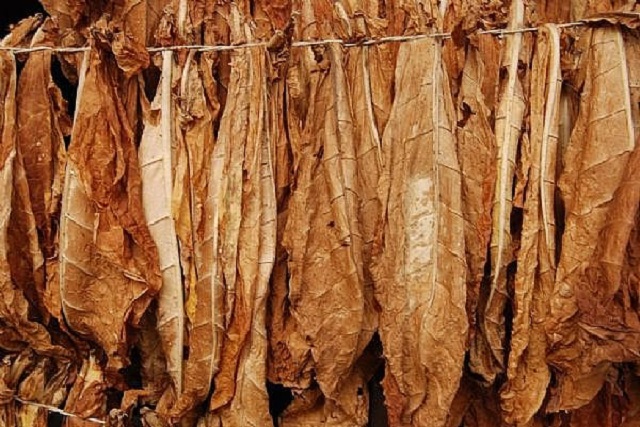EDITORIAL COMMENT: Command tobacco growing must come with value addition

The country’s three tobacco auction floors opened for the 2018 marketing season on Wednesday with the crop grown under contract going on sale starting yesterday.
About 200 million kilogrammes of the golden leaf are expected to be sold this season, earning farmers around $500 million. The output is a substantial increase from 186 million kilogrammes harvested last year. The crop whose marketing started over the past two days was grown by 122 000 farmers, up 45 percent from 84 221 last season.
The Tobacco Industry and Marketing Board (TIMB) this year licensed Boka Tobacco Auction Floor, Tobacco Sales Floor and Premier Tobacco Auction Floor to conduct the sales. Also licensed are 29 buyers and 23 contractors.
Vice-President, General Constantino Chiwenga (Retired) officially opened the selling season in Harare on Wednesday. He witnessed the sale of the first bale which attracted a good price of $4,90/kg.
Every year, Zimbabweans in general eagerly wait for this moment, when the country’s major cash crop and one of its biggest foreign currency earners goes on sale. For tobacco growers, it marks the beginning of a period when they receive their biggest pay packets for the year. For businesses in Harare, this is one period when they make money as growers spend on houses, vehicles, furniture, clothing as well as inputs for the following season.
This season, said Gen Chiwenga, is set to be the last before tobacco is grown under Command Agriculture.
“I am elated to report that Government has extended the Tobacco Contract Model to the same category, Special Maize Production programme commonly known as Command Agriculture, which recently has been extended to cover wheat, soya beans, livestock, fisheries and wildlife production,” he said while officially opening the season at Tobacco Sales Floors.
“Government is aware of the liquidity challenges facing the country, which invariably affect efforts towards optimum production capacities. That being the case, Government through the Reserve Bank is committed to coming up with policy interventions that will support the entire sector. This will buttress the already existing export incentives and finance to ensure access to affordable inputs by farmers.”
The decision by the Government to have tobacco grown under the Command Agriculture scheme is a positive one. We saw an active involvement of the Government in maize during the 2016/17 farming season. The result was that the country had one of its biggest harvests since 1980. We also saw a record harvest of small grains. The large harvest gave the Grain Marketing Board a challenge it had never encountered in years — that of having to boost its storage capacity.
In total, farmers harvested around two million tonnes of grain in the 2016/17 season — 1,6 million tonnes of maize and the remainder was small grains. The harvest was so huge that even if this year had been unsuccessful agriculturally as we were beginning to fear amid the early season dry spell, the country faced no risk of food shortage.
So Command Agriculture has had a great record with regard to maize and other cereals. We have no reason to doubt the effectiveness of the scheme with regard to tobacco. Output should increase just as happened with cereals. When the command scheme is implemented tobacco growers, most of whom are in the communal and A1 farmers sectors, will be able to ramp up production and productivity since support under the model involves provision of seed, fertiliser, chemicals as well as technical assistance. They stand a chance of reaping more in terms of volumes and earn more financially. Therefore, we are supportive of the decision by the Government.
With the command model to be extended to the golden leaf in the 2018/19 season and with the huge harvests expected from them on the need for the tobacco sector to invest in value addition and beneficiation becomes more necessary. It has always been an imperative over the years but it will be a greater imperative from next season when we predict output to rise sharply under Command Agriculture.
Gen Chiwenga pointed out on Wednesday that 98 percent of all tobacco grown in the country is exported.
“Tobacco processing is partially being done by merchant companies, who remove stems and tips from the leaf before it is shipped abroad. This adds a mere 30 to 50 percent to the crops final export value.
“The country will also benefit from by-products such as pesticide and hair oils and this will assist in reducing the unsustainable import bill through import substitution,” he said.
As we noted early on, Zimbabweans are happy at this time of the year, expecting much money into their pockets and the economy at large. However, what the economy earns from exporting 98 percent of the output is only a fraction of the full value of the crop if the industry advanced its processing capacity.
Beneficiation creates more jobs, creates more value for the industry and the economy at large.
This is the route to take.











Comments